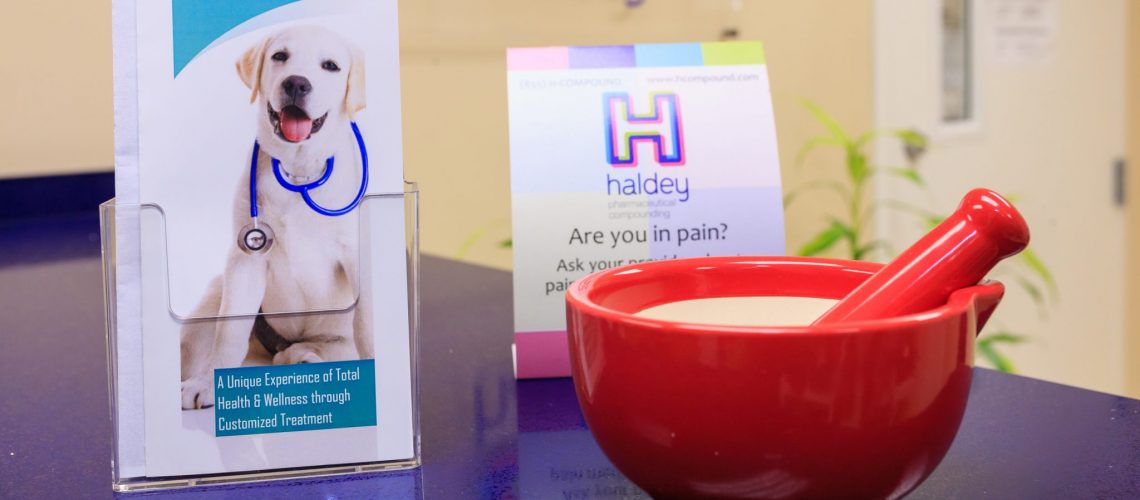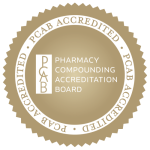There are more than 150 million dogs, cats, and birds living in American households today. For many pet owners, their animal companions are thought of as members of the family. Veterinarians working with these and other small animals must make special considerations when dosing medications so as to provide formulations suited to each species and breed.
Today, more and more successful veterinary practitioners are embracing the implementation of compounded medications in their practices to better serve their patients, resulting in the significant growth of veterinary compounding.
Especially in the case of small animals, compounded prescriptions can be designed to deliver an appropriate dosage that may not be offered in generic or commercially manufactured drugs.
Compounding: What Vets Need to Know
To serve the needs of specific animal groups, veterinarians will engage with a specialized veterinary compounding pharmacy to help their clients access easy-to-administer treatment options. Some of the key considerations veterinarians must keep in mind when prescribing compounded medications to small animals are not much different than prescribing to any veterinary patient. They are related to compliance with the legal requirements, the therapeutic need for compounded medications, and benefits associated with customized treatment.
Veterinarians working with a compounding pharmacy should be familiar with the laws set by their State Board of Veterinary Medicine with regard to prescribing compounded medications. They must also be aware of the legislative updates from State and Federal agencies concerning the compounding pharmacy practice.
Veterinarians must also comply with the DEA’s legal requirements for controlled substances used in vet patients, regardless of the size of the patient. To this point, it is important to note that the scheduling and requirements for controlled substances vary from one state to another and veterinarians must know and comply with the myriad of laws and regulations related to each type of medication.
Therapeutic Considerations for Small Animals
The therapeutic considerations made by veterinarians when prescribing compounded medications for small animals correspond to the medical circumstances that require a customized treatment approach. Where smaller dosing options are unavailable, consider adjusting the dose to meet the exact need of the small vet patient. When a manufacturer discontinues an effective drug or a drug becomes back-ordered, switching to a compounded version of the medication may be a solution. If a small animal needing multiple medications is having trouble accepting their treatment, it may be possible with the use of compounding to combine certain drugs as required. In this case, of course, drug interactions must be considered.
In other cases where a small animal is having difficulty accepting a medication, adding a flavor during the compounding process may make the medication more palatable and facilitate easier administration. Changing the route of administration is another option to consider in these instances that does not compromise compliance, safety, or efficacy of the treatment.
The Benefits of Customized Treatment
Benefits associated with customized treatment are some of the highly valued considerations for prescribing compounded medications because they help the small animal patient to better adhere to the treatment. The ability to flavor a medication and change the dosage form are two of the leading benefits that can improve clinical outcomes for small animal patients and make an owner’s life easier, particularly when treating chronic conditions.
Other specific considerations relate to the individual species and breeds treated within the small animal category. Cats and dogs are the most commonly seen small animals in veterinary offices as pets. When prescribing medications to cats and dogs, the focus should be placed on the anatomical and physiological characteristics of each species and breed. The pharmacology of each prescribed drug relates to the specific metabolic pathway for each species and breed.
Considering Drug Interactions and Toxicity
Great attention must be paid to the toxicity of certain drugs and the animal’s intolerance to them, as well as to certain inactive ingredients. For example, some of the inactive ingredients in approved drugs that may be toxic to dogs are Cremophor (surfactant), Ethoxyquin (preservative), Thimerosal (preservative), Polysorbate 20 & 80 (surfactant), and Xylitol (sweetener). NSAID’s, isoniazid, sulfonamides, and estrogens are a few examples of drugs that can be potentially toxic to dogs, more so for some breeds than others.
Feline patients can develop toxicity to drugs such as Acetaminophen, Chloramphenicol, Diazepam, Enrofloxacin, Propylthiouracil, and Venlafaxine. Some inactive ingredients felines can be sensitive to are Azo dyes (synthetic dyes), Benzoic Acid derivatives (excipients), Essential Oils, Alcohols, and others.
Work with a Compounding Pharmacy You Can Trust
The statistics for 2017-2018 show that more than 107 million households own cats and dogs. This means that 74% of the households that own pets are owners of at least one small animal. Statistics also show that these households spent around $30 billion in 2017 for veterinary care and medication.
With so many pets and pet owners needing individualized attention for their care, it is easy to understand the importance of working with a compounding pharmacy you can trust.
It is also important to consider that, while small animals account for the bulk of vet patients, other subspecialties of veterinary pharmaceutical compounding exist to address the needs of large and exotic animal types.
The experts at HALDEY Pharmaceutical Compounding believe that the customization of your patients’ care through compounded medications should be an integral part of each veterinary practice.
Let the expert team at HALDEY help you integrate state-of-the-art, customized treatment solutions into your standard of care. Contact us for a free assessment.




